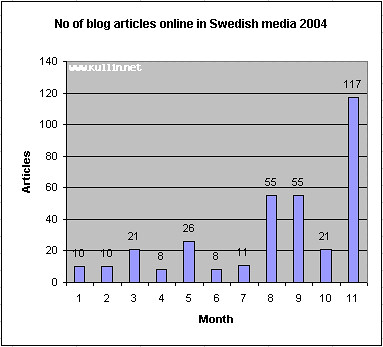Pontus Schultz reads Wired. Especially the October issue.
Today I got my hands on the newest magazine on the Swedish market, Att:ention, a magazine about “business and pleasure” from Bonnier publishing house Bonzoo. Att:ention is media entrepreneur Pontus Schultz’ new baby, so to speak (no, not the one he pushes around in a pram…). The magazine seems to be a salute to entrepreneurs, talents and free agents and is a nice mish mash of career advice, design, and portraits of young (good looking, of course) people who “made it”. No-one is old, no-one is ugly. Throw in some soft porn, some gays and a bunch of former McKinsey consultants and you sort of see where this is heading. It’s the dotcom boom all over again minus the hype, it is “brand you” and free agents and the talents rule. No, I am being a bit mean, it is really quite interesting and I’m looking forward to read more of the articles, but what’s up with all these ex-McKinseys being mentioned over and over again? Wouldn’t it be a bit more interesting to talk to someone who manages to stay at McKinsey?
Anywho. The magazine starts and ends with two terrible Wired rip-offs. First, it is the “wired/tired/expired” thing that gets not-so-reinvented. Hmm, so Tivo is hot, I thought that was so last year? The other thing from Wired is the Jargon Watch that gets duplicated and 2 out of the 4 “new words” in Att:ention are from Wired in October (bluespamming and click fraud). Even the reference to Gizmodo is in there. We don’t want a “Wired meets Café”, but two months later. Give me something I haven’t read before. Not the Pinc House that I read about in Residence some, what, 12 months ago?
If we disregard those small mishaps, I haven’t had time to read that many articles yet so maybe I’m jumping the gun here. I think Att:ention has potential. This is a magazine that I could very well imagine reading and I think that Schultz often has a good view of what’s hot or not. But a magazine dedicated to entrepreneurship, new ideas and great thinkers can not survive by copying others.
Update: There’s some good reading in here, for example the interview with Jesper Kärrbrink and the article about the Swedish music industry.
